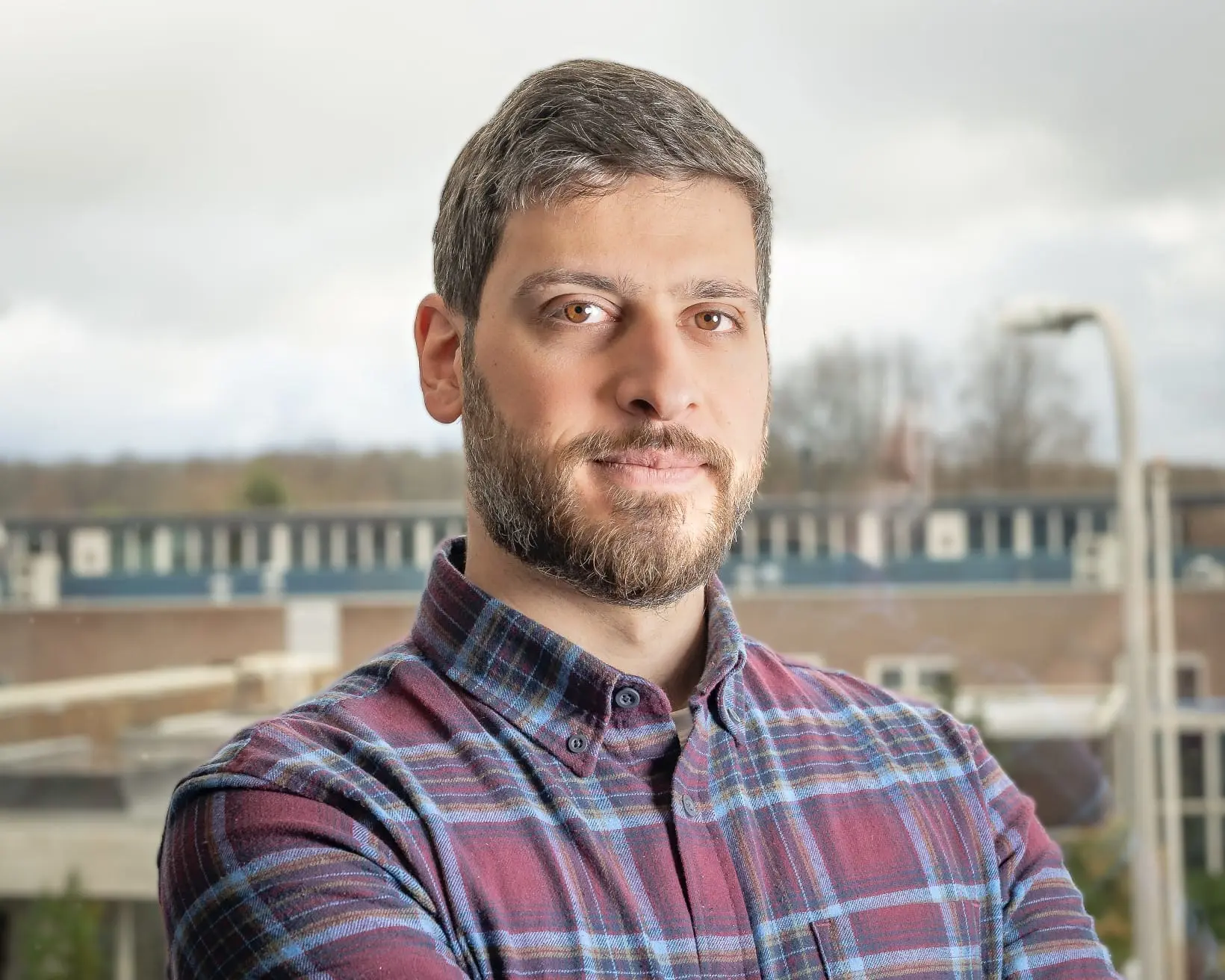
"If you want to find work in the Netherlands, networking is the most important thing."
Share on social media:

The stories Ramy Weiss (33) from Syria heard about finding work in the Netherlands were sometimes discouraging. Nevertheless, he has now found a job as an engineer. The same profession he had in Syria. "You, as a refugee, are just as qualified for work as someone from Europe."
"I didn't want to start from 0 in the Netherlands."
When Ramy applied for asylum in the Netherlands in September 2021, he had a clear plan in mind to resume his life: work with the diploma he already obtained in Syria. He did not want to start completely from 0. "I was 30 years old and had no time to study again," he says. Before leaving Syria, he called friends already living in the Netherlands and asked about working in the Netherlands and Dutch culture. "The stories I heard were sometimes discouraging and sometimes hopeful."
Recently, Ramy was offered a contract with an engineering firm in Oldenzaal. "The fact that I succeeded shows that a lot is possible for us. As a refugee, you are just as capable of work as someone born and raised in Europe. The only barrier is the language."
"Finding a job that matched my education was difficult."
Ramy sees that the municipality can play an important and positive role in finding a job. When you just live in the Netherlands, you depend on the municipality. Therefore, having a good relationship with your work coach is very important. When he moved to Borne, he found volunteer work at a football club through a volunteer he knew in the asylum seekers' centre. "I reported this to the municipality. They were happy that I was active and took the initiative myself," he says.
Ramy also continued to search for a suitable job. He kept an eye on the Indeed.nl website and kept applying. "There were many practical jobs, but to find work as an engineer was difficult. Once I was invited for a job interview. The employer said I was welcome. But after a few months, he indicated it was ending for me, even though I had the potential to grow. Still, I greatly appreciated his honesty and advice."
"My network gave me a lot of tips"
Being unpaid and volunteering can have many benefits for you as a newcomer, Ramy observes. "The most important thing is networking," he says. "I got to know many people in my area. They gave me tips during my search for a job, such as registering with an employment agency." Ramy sees that a good network is something newcomers often lack. "You can't live in isolation here. You need people to teach you how things work."
Occasionally Ramy interprets at
"In the Netherlands, the atmosphere is much friendlier in the workplace."
Ramy notices cultural differences between the Netherlands and what he was used to in Syria. "Dutch people get stressed at work sometimes, but what is considered stressful here is very different from what we are used to. I think as Syrians we are very stress resistant because of everything we have been through."
In Homs, he worked eight hours a day at his computer and couldn't just chat with his colleagues. "If you were caught, you got a warning email right away." Here, he says, the atmosphere is much friendlier: "The boss is approachable and human. The Dutch can have a nice chat as a team during their break. This recharges you and makes you feel good when you go back to work. You don't work for someone, but you work together. That's very nice."
This story was written by Judy Karojoli of RFG Magazine in collaboration with RefugeeHelp.